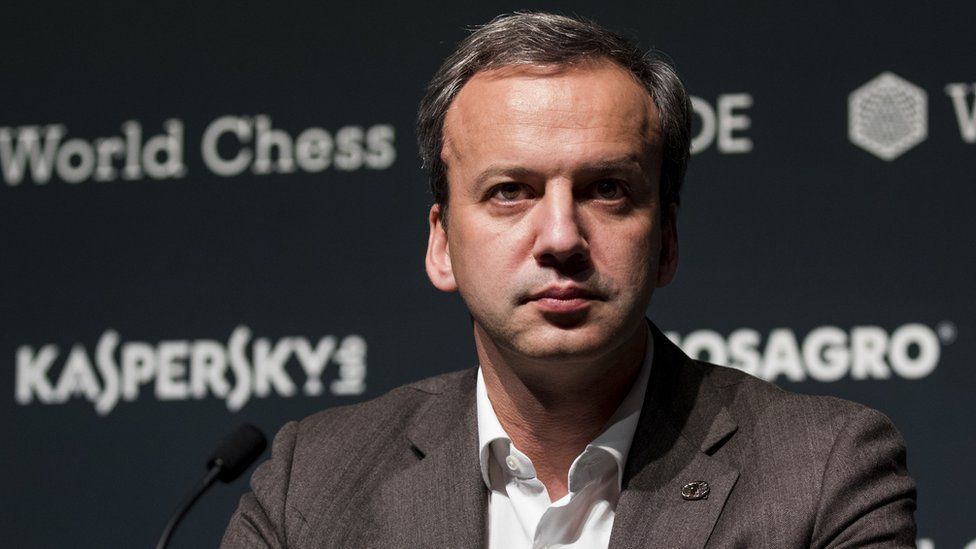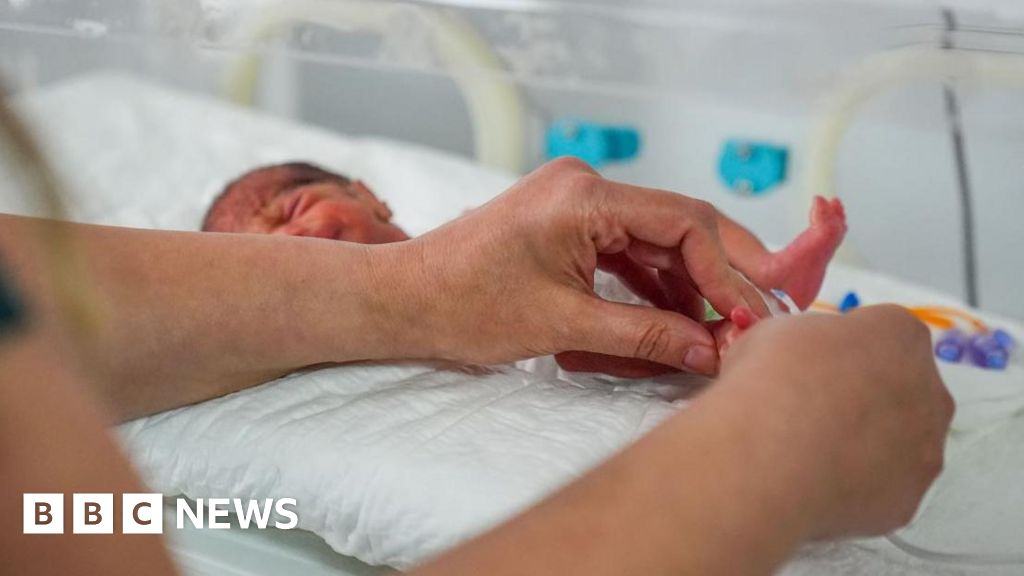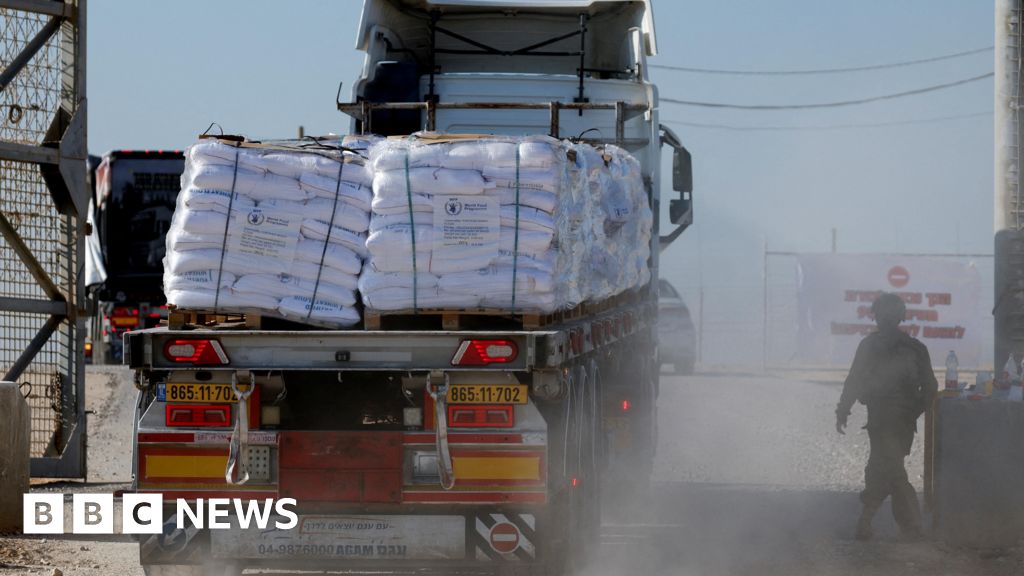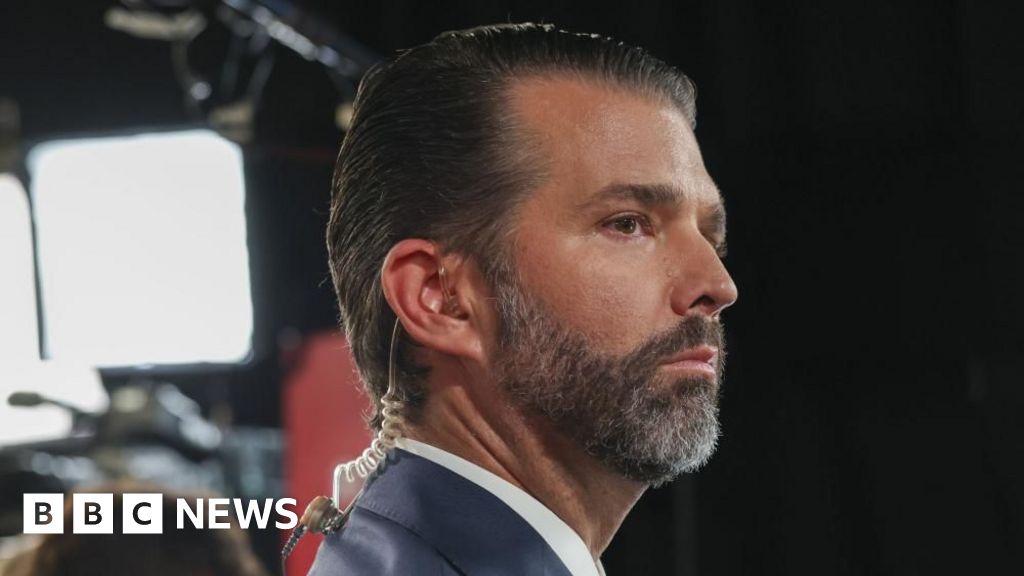ARTICLE AD BOX
By Susan Ninan
Sports Writer
 Image source, Getty Images
Image source, Getty Images
Arkady Dvorkovich is seeking a second term as FIDE president
In August, Mahabalipuram, a small town in the southern Indian state of Tamil Nadu, will serve as the unlikely venue for a Russia-Ukraine battle.
Representatives of more than 180 countries will vote - at the sidelines of the upcoming Chess Olympiad, which India is hosting - to choose the chief of The International Chess Federation (FIDE), the apex body for global chess.
The frontrunner is Arkady Dvorkovich - current president of FIDE and former deputy prime minister of Russia - who is seeking a second term in office.
Going up against him is Ukrainian Grandmaster Andrii Baryshpolets, who announced his candidacy in late May.
There are two other candidates in the fray for the top post - Bachar Kouatly, who is currently vice-president of FIDE, and Inalbek Cheripov from Belgium.
It has been more than four months since Russia invaded Ukraine, setting off global shockwaves.
Since then, Moscow has been sidelined by several global forums, but Dvorkovich's camp is counting on two factors to see them through: the boom chess saw during the pandemic and FIDE's efforts to keep the tournament calendar ticking through difficult months.
His opponents, on the other hand, argue that Russia has controlled chess's administration for too long.
Image source, Getty Images
Image caption,India's Viswanathan Anand is one of the most respected names in chess
Apart from the face-off between two warring countries, the 7 August election has another interesting sub-plot.
Dvorkovich has chosen one of the most respected names in chess to become FIDE's deputy president if he wins - five-time world champion Viswanathan Anand from India.
And the Indian legend's opponent on the Ukrainian GM's side is his former coach, Peter Heine Nielsen.
Nielsen - who currently coaches world number one Magnus Carlsen - was part of Anand's core group of trainers during four of his five world title wins from 2007-12.
Nielsen is one of FIDE's most vociferous critics. He has questioned the transparency of its funding and the presence of government officials among the Russian chess federation's board of trustees.
"Our fight is not against Dvorkovich. It's against the Kremlin's control over FIDE," Nielsen told the BBC, adding that 11 of the 20 major chess events were hosted in Russia over the past four years.
"There is a strong wish in the chess community to distance ourselves from Russia and be truly independent of Kremlin influence. This election could bring about a paradigm shift. We're optimistic," he says.
Image source, Andrii Baryshpolets/Facebook
Image caption,Ukrainian Grandmaster Andrii Baryshpolets announced his candidacy in May
Before Dvorkovich took over, Russian businessman and politician Kirsan Ilyumzhinov was FIDE president for over two decades with Vladimir Putin's backing. His chaotic tenure cast long shadows over the image of the body.
But Anand believes that FIDE has changed for the better under Dvorkovich.
Over his over three-decade-long career, Anand had stayed away from chess politics. He stuck to this stance even during a difficult period in the 1990s, when Garry Kasparov and Nigel Short rebelled against FIDE and set up a rival organisation.
Partly, this was because he thought he wasn't fit for politics. He also feared his chess might suffer at a time when he was climbing the ranks and trying to prove his worth. He was something of an anomaly in chess then - non-Russian, with no major institutional backing.
But today at 52, straddling his legend with an active player status, the Indian has chosen to pick a side.
Image source, Peter Heine Nielsen/Facebook
Image caption,Peter Heine Nielsen (right) with World number one Magnus Carlsen
Even Dvorkovich's critics would agree that he has made a wise choice in picking Anand as his key aide.
The Indian is among chess's all-time greats, a widely-admired figure with no previous political affiliations and an unblemished record in public life.
"The chess world is really happy to see Vishy (Anand) getting actively involved in chess politics," Nielsen says of his former boss.
"It's great he promotes the game. Sad, though, that he aligns himself with the Kremlin."
Anand, however, is convinced that he's on a side that has earned its goodwill.
Dvorkovich has the reputation of a modern technocrat and an able administrator. An economist by training, he chaired the organising committee when Russia hosted the 2018 FIFA World Cup.
But irrespective of his abilities, it's Russia's continued control over the sport that's seen as contentious, especially in the backdrop of the war.
In a recent interview to chess24, Dvorkovich said that he faced pressure from Moscow to "protect Russian interests" because of the war.
He had to take some hard decisions, including terminating sponsorship agreements with Russian companies. It's demonstrative of the complex position he finds himself in - having to wage battles at home to be able to do his job.
"People can see that this year, especially, Dvorkovich has taken a lot of decisions that show he is able to function independently of Russia," Anand says. "He has acted like a FIDE president rather than a Russian."
Levon Aronian, who is currently ranked number five, agrees that Dvorkovich's tenure has been efficient.
"Earlier, FIDE was run by indifferent functionaries. They didn't really care about the players. The current administration has been doing a decent job, most players would agree. Despite Covid, lots of major tournaments were put together over the past two years," he said, adding, however, that he thought the management should be more transparent about their financial deals.
Originally, Moscow was scheduled to host the Olympiad and FIDE Congress. India won the bid after FIDE stripped Russia of all hosting rights due to the Ukraine invasion.
Image source, Getty Images
Image caption,Prime Minister Narendra Modi inaugurated a torch relay for the Chess Olympiad in the presence of Dvorkovich
Currently, India is working hard to turn the Olympiad into a spectacle.
Prime Minister Narendra Modi inaugurated a torch relay for the event in Mr Dvorkovich's presence. The torch will travel through 75 cities and towns before it arrives in Mahabalipuram.
The Olympiad is returning to Asia after three decades. This is the first time that the tournament and the elections will be held in India.
In such a scenario, having the sport's most accomplished name from the region on his team has perhaps been the smartest move Dvorkovich played.
Susan Ninan is an independent Bangalore-based sports writer
You may also be interested in:
People pay to watch me play chess

 2 years ago
36
2 years ago
36








 English (US)
English (US)